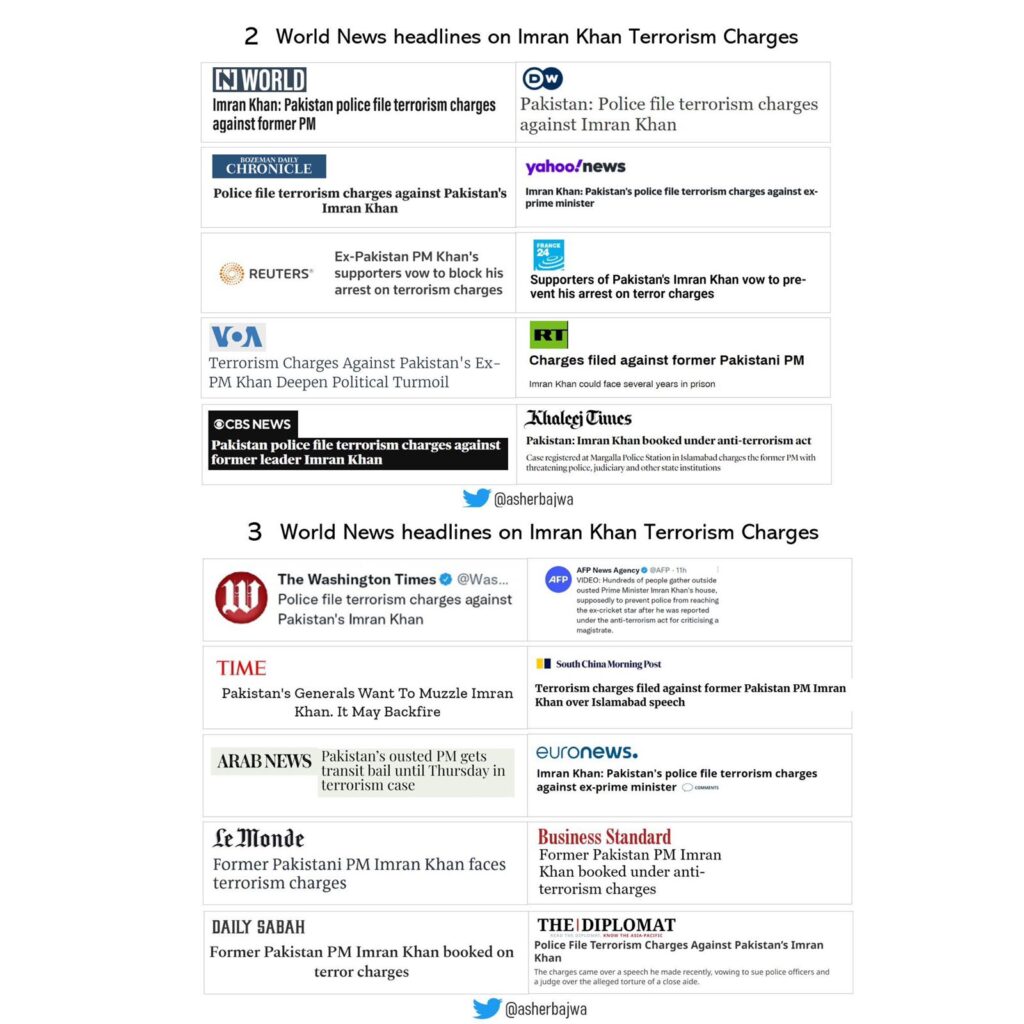The political unrest in Pakistan was also heard far away in the United States, where the State Department emphasized the need to adhere to “democratic, constitutional, and legal” principles and the UN chief urged Islamabad to maintain the impartiality of the legal system.
The controversy that erupted after PTI chief Imran Khan made controversial comments about a female judge and the Islamabad police also caught the attention of the US media and Washington think tanks, where experts urged the ruling and opposition forces in Pakistan not to upset the apple cart.

When a reporter questioned the UN chief about recent political developments in Pakistan on Monday afternoon in New York, the topic was also raised. Secretary General Antonio Guterres was “aware” of the accusations made against Imran Khan, according to Stéphane Dujarric, the UN chief’s spokesperson, who also emphasized the “need for a competent, independent, and impartial legal process.”
The secretary general calls for calm, a lowering of tensions, and adherence to the law, human rights, and basic liberties, he said.
Ned Price, a spokesman for the US State Department, stated that while Washington was aware of the accusations against Imran Khan, it was “a matter for the Pakistani legal and judicial system.” At a press conference, Mr. Price said, “We don’t have a position on one political candidate or party versus any other political candidate or party, so it is not directly a matter for the US.”
The peaceful upholding of democratic, constitutional, and legal principles in Pakistan and throughout the world is supported by the United States, he asserted.
Imran Khan threatened to file cases against the Islamabad police in his speech on Saturday night. He also warned the judiciary that it would be held accountable for its alleged “biased” treatment of his party.
The New York Times stated in a report on the state of affairs in Pakistan that “the move against Imran Khan is a major escalation of the government and the former leader’s power struggle and risks renewed public unrest.”
The power struggle between Pakistan’s government and its ousted prime minister has reportedly intensified, according to The Washington Post, with authorities now targeting the media that supported Khan.
“Pakistan’s dollar-denominated bonds took a hit along with its currency and stocks, after the government said it is considering legal action against the former prime minister,” according to Bloomberg, a US-based financial news outlet.
The government should give priority to flood victims and other urgent issues, according to Madiha Afzal, a scholar of Pakistan and Afghanistan affairs at the Brookings Institution in Washington.
“There is no more important matter. However, it focuses on scoring political points,” she said in a tweet. What would benefit Pakistan the most? for a meeting between the main political parties to defuse the situation. However, it’s extremely unlikely to occur.
What would be best for Pakistan? For the major political parties to sit down and deescalate the situation. Focus on the people — on flood victims. But it’s very unlikely to happen.
— Madiha Afzal (@MadihaAfzal) August 22, 2022
And the larger issue is that, as always, it’s not only the political parties that are in conflict.
Mahnur is MS(development Studies)Student at NUST University, completed BS Hons in Eng Literature. Content Writer, Policy analyst, Climate Change specialist, Teacher, HR Recruiter.










